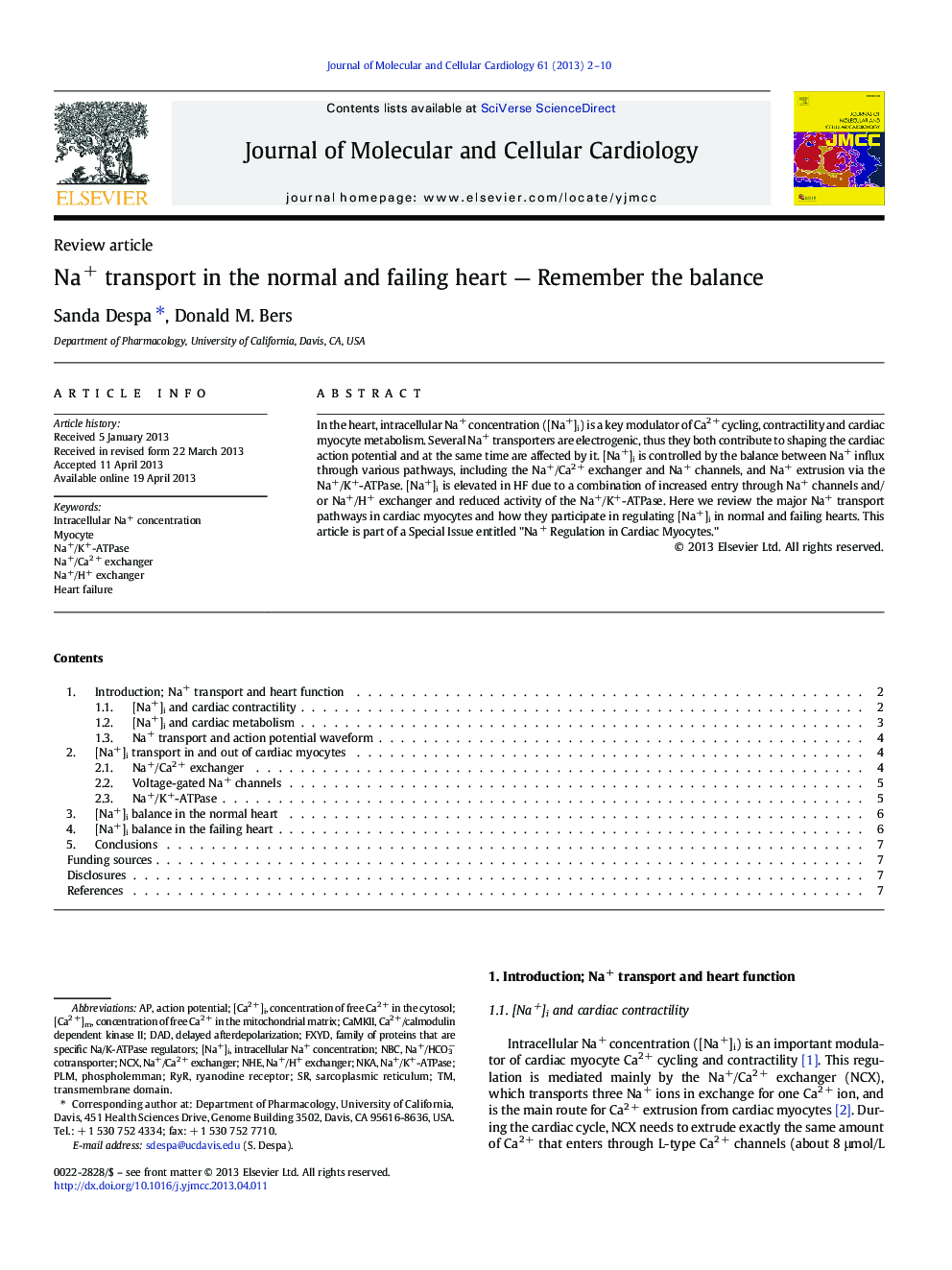| Article ID | Journal | Published Year | Pages | File Type |
|---|---|---|---|---|
| 8475131 | Journal of Molecular and Cellular Cardiology | 2013 | 9 Pages |
Abstract
In the heart, intracellular Na+ concentration ([Na+]i) is a key modulator of Ca2 + cycling, contractility and cardiac myocyte metabolism. Several Na+ transporters are electrogenic, thus they both contribute to shaping the cardiac action potential and at the same time are affected by it. [Na+]i is controlled by the balance between Na+ influx through various pathways, including the Na+/Ca2 + exchanger and Na+ channels, and Na+ extrusion via the Na+/K+-ATPase. [Na+]i is elevated in HF due to a combination of increased entry through Na+ channels and/or Na+/H+ exchanger and reduced activity of the Na+/K+-ATPase. Here we review the major Na+ transport pathways in cardiac myocytes and how they participate in regulating [Na+]i in normal and failing hearts. This article is part of a Special Issue entitled "Na + Regulation in Cardiac Myocytes."
Related Topics
Life Sciences
Biochemistry, Genetics and Molecular Biology
Cell Biology
Authors
Sanda Despa, Donald M. Bers,
